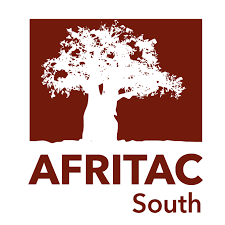
Posted by Robert Clifton, Edwin Vela-Moyo, and Johann Seiwald[1]
Strengthening fiscal transparency and gender-responsive budgeting are priority PFM reforms in Southern Africa, the potential benefits of which are widely documented in the literature. Good progress has been made in South Africa, Mozambique, Seychelles, and Mauritius, especially on fiscal transparency, but more needs to be done in other countries. A recent workshop was organized by the IMF’s Regional Technical Assistance Center for Southern Africa, AFRITAC South (AFS), to discuss the opportunities and challenges of these reforms.[2]
The workshop was designed around the following themes:
- Concepts and frameworks for fiscal transparency, and an assessment of current practices, key drivers and implementation challenges in the region;
- An overview of gender-responsive budgeting (GRB), its key instruments, and an assessment of current practices and implementation challenges.
The workshop aimed at familiarizing participants with key concepts and international good practices, as well as realistic and practical approaches to reform. It provided an opportunity for peer learning through the sharing of knowledge and experience on country-specific budget transparency improvements, GRB initiatives, and key enablers of reform. In addition to IMF experts, several international organizations shared their knowledge and experience:
- The Global Initiative for Fiscal Transparency presented on public participation in the budget process and GRB in the context of the SDGs;
- The International budget Partnership presented insights and trends revealed by the Open Budget Survey;
- The National Treasury (South Africa) discussed improvements in fiscal transparency in that country;
- The Collaborative Africa Budget Reform Initiative (CABRI) presented on the opportunities and challenges of advancing transparency in Africa;
- United Nations Women discussed issues of gender economics;
- The Ministry of Finance and Economic Planning (Rwanda) discussed progress on implementing GRB in that country; and
- The PEFA Secretariat presented their proposed gender budgeting diagnostic tool.
The discussions focused on six principal areas:
- Initiatives on fiscal transparency are on the way: While South Africa is a leader in fiscal transparency—with scores on the Open Budget Survey among the top three globally—while transparency scores for the majority of AFS countries are much lower. Various initiatives on strengthening fiscal transparency are currently underway in the region. These include improving the functionality of existing financial management information systems (FMIS), expanding fiscal reporting beyond budgetary central government, implementation of program-based budgeting, and introducing fiscal reports that comply with international standards (GFSM 2014).
- Timeliness is an issue in many countries: Some countries reported that they produce several budget documents as well as reports that are used for internal purposes only. While quick wins by publishing these internal documents could be realized, participants noted that political and institutional impediments often arise.
- Public participation in the budget process is a neglected area: The Open Budget Survey has shown that even countries with high fiscal transparency scores in the region have not yet fully established mechanisms that give citizens an opportunity to express their views during the budget process through consultations and dialogue with budget officials. A prerequisite for effective participation in the budget is improved disclosure of fiscal information to citizens and strengthened budget literacy.
- The implementation of fiscal transparency requires champions: In a panel discussion, there was agreement on the importance of the finance ministry, at both political and managerial level, driving the initiatives. Important stakeholders include researchers, international organizations, supreme audit institutions, and financial markets.
- Gender-responsive budgeting is still in its infancy in Southern Africa: GRB that ensures a gender perspective throughout the budget cycle is the ultimate goal. Rwanda, which is one of the frontrunners in GRB, shared their approach. While all AFS countries have enacted the principle of gender equality in their legal frameworks, much less progress has been made on integrating GRB in the budget process and developing key tools such as gender budget statements and gender reports.
- Complementary reforms are a prerequisite: Strengthening fiscal transparency and GRB requires that work on basic PFM reforms such as expenditure classification, the functionality of the FMIS, and the presentation of budget documents proceeds hand-in-hand. In this regard, the sequencing of PFM reforms is of key importance: only a few reforms can be implemented at the same time, and some reforms depend on others for their success.
The workshop created the opportunity for sharing and collaboration among the participating countries to identify areas for improvements in their systems. AFS will continue to support such initiatives and provide targeted technical assistance for the design and implementation of transparency and GRB reforms in the region.
[1] Robert Clifton is the Resident Advisor for PFM at AFS. Edwin Vela-Moyo and Johann Seiwald are both short-term PFM experts.
[2] The workshop was held on September 23-27, 2019 in Pretoria, South Africa. The participating countries were Angola, Botswana, Lesotho, Madagascar, Mauritius, Mozambique, Namibia, Rwanda, Seychelles, South Africa, Swaziland, Zambia, and Zimbabwe.
The posts on the IMF PFM Blog should not be reported as representing the views of the IMF. The views expressed are those of the authors and do not necessarily represent those of the IMF or IMF policy.







